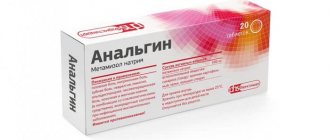Composition and action
Glycine is an amino acid, one of 20, used to make proteins in the human body. The drug consists of 98% of the substance of the same name. After taking the medication, the amino acid breaks down into water and carbon dioxide. The tablets have a sweetish taste. Glycine calms, relieves emotional stress and anxiety, helps cope with fear and depression, reduces side effects from sleeping pills, anticonvulsants and antidepressants, improves memory. In addition, it regulates metabolism, causes protective inhibition in the central nervous system, reduces mental stress, and increases mental productivity.
Glycine is often prescribed during lactation, as it increases resistance to emotional difficulties and does not create harmful effects on the baby and mother. Glycine is also found in high protein foods such as:
- meat;
- fish;
- dairy products;
- legumes
Glycine during lactation should be prescribed by a specialist.
The concentration of the active component in the drug is minimal, due to which it gives a mild, gentle effect. The product is produced in the form of tablets - 10, 30, 50 or 100 pieces.
Feedback from nursing mothers
Glycine is a popular drug that occupies one of the first positions among safe drugs for women during pregnancy and lactation for many indications. However, despite all the statements about compatibility with hepatitis B, preliminary consultation with a specialist before starting treatment is required.
During lactation, before starting to take glycine, a nursing mother should try to cope with problems without the use of drugs. First you need to try using non-drug remedies:
- Get good sleep.
- Walk more.
- Exercise.
- Take relaxing baths.
- Ask your loved ones for help caring for your baby.
- Drink herbal teas, which include valerian, mint and lemon balm, as a sedative.
Pregnancy and childbirth are a difficult test for a woman’s body, which can cause chronic fatigue and postpartum depression. Glycine helps reduce nervousness, relieves excess emotional stress from the mother’s nervous system and increases resistance to stress. Whether glycine can be used as a sedative in each specific situation should be decided by a specialist.
Elena, 31 years old.
I’ve been taking Glycine for 2 weeks now, 2 times a day, I’ve become much calmer, I sleep great at night - both me and the baby.
Anna, 25 years old
I've been taking this product for a long time, but it doesn't help me.
Ivanna, 38
I put the tablet under my tongue, and after 5 minutes I’m good as new: again a calm, happy and adequate mother.
Using glycine while breastfeeding: is it possible or not?

The safety of glycine has not been fully tested or studied. Particular caution should be exercised when taking glycine by nursing women, as well as people with liver or kidney disease [1].
Glycine during breastfeeding will be useful if it is necessary to stabilize the emotional background, calm the nerves, and help cope with postpartum depression. Why glycine can be useful for a nursing mother:
- speed up falling asleep and improve sleep;
- cheer up;
- reduce aggressiveness;
- restore mental state;
- increase mental performance.
The use of medications during lactation should definitely be discussed with your pediatrician.
How does it affect lactation and the mother?
Glycine can be used during lactation - it is a natural amino acid. It is natural for the body; a decrease in breast milk production while taking the drug has not been recorded. However, as discussed above, the lack of clinical studies on this topic requires caution.
A nursing mother can take this sedative, it helps:
- increased performance;
- improving mood;
- reducing anxiety;
- eliminating signs of psycho-emotional stress;
- stimulation of brain activity and memory;
- restoration of normal sleep;
- decrease in pressure;
- reducing the manifestations of vegetative-vascular disorders.
Each person is individual, and if you notice that as a result of the action of glycine, the amount of milk has decreased, then it is better to stop taking it or reduce the dosage.
How does it affect the child?
During breastfeeding, glycine enters the baby's body through breast milk in very small quantities. The instructions must be followed, then the substance will not have any negative effect on the baby. On the contrary, its use is characterized by positive effects:
- normalizes heart rhythm;
- eliminates symptoms of increased excitability;
- used for hypertension.
The medicine is approved for use in newborns. It is prescribed by pediatric neurologists when symptoms such as poor sleep and frequent crying occur.
Indications for use for nursing mothers
Undoubtedly, taking any medications, including sedatives, must be agreed with your doctor. If you have been recommended to take glycine during guardianship, then you should not neglect this prescription. The drug will help you relieve emotional stress and increase stress resistance, which, in turn, will certainly have a positive effect on both the lactation process and the baby’s mental state.
Can glycine be used during lactation? Glycine can only be taken after consulting a doctor. Breastfeeding a baby is considered a natural process, but it is still difficult, and the mother needs help during this period. Many mothers read positive reviews about this remedy and start taking it without the recommendation of a specialist, which is wrong.
Glycine during and after breastfeeding functions to normalize sleep, reduce nervousness, help cope with the symptoms of postpartum depression and suppress the effect of stress hormones. Due to this action, most mothers are prescribed this drug by their doctor as a sedative. In the first month after childbirth, women are prescribed the drug to normalize and improve metabolism in the body.
This sedative can also be taken by nursing mothers.
In this case it acts like this:
- Increases performance;
- Significantly reduces excitability and anxiety;
- Reduces psycho-emotional fatigue;
- Improves mental functioning of the brain;
- Helps improve memory;
- Normalizes sleep;
- Reduces high blood pressure;
- Eliminates vegetative-vascular disorder;
- Eliminates addiction to sweet foods;
- Helps reduce weight.
But still, during breastfeeding, the medication has some limitations.

You can take the drug only as prescribed by a doctor.
Although glycine is considered a safe drug during lactation, you should be careful when taking it. If something goes wrong, the mother may experience adverse reactions.
You should not take glycine in the following cases:
- An allergic reaction has occurred in the mother or baby;
- The baby's lethargic state, or he began to refuse the breast;
- If the child’s excitability has increased, that is, he constantly cries and practically does not sleep.
If such manifestations are noticed, you should consult your doctor. He'll pick up another sedative.
Allergy to glycine
Glycine contains exclusively plant components, due to which it is not classified as a dangerous sedative during breastfeeding. But in some women, glycine during primary lactation can cause allergic reactions.
These include:
- The appearance of an itchy rash;
- The appearance of urticaria;
- Formation of Quincke's edema;
- Anaphylactic shock.
If the mother notices any such symptom, she must immediately stop taking the sedative. Otherwise, each subsequent intake of tablets will increase the degree of development of the allergic reaction.
During breastfeeding, many young mothers are prescribed by the doctor to take glycine as a sedative, as it helps increase resistance to stress and relieve emotional overload.
The use of this drug during lactation helps achieve the following goals:
- reducing anxiety and excitability;
- reducing high blood pressure;
- improving memory;
- normalization of sleep;
- improving performance;
- relieving psycho-emotional fatigue;
- reduction of vegetative-vascular disorders;
- uplifting mood;
- suppressing the craving for sweets and, accordingly, weight loss.
It must be said that glycine is a mild antidepressant, therefore it is effective only in the initial stages of neurological diseases. If a woman’s psycho-emotional state gets out of control and requires treatment from specialists (psychiatrist, psychotherapist), using glycine is ineffective.
The instructions for use of the drug indicate only individual intolerance as side effects. That is why people who are allergic to it should not take this medicine. It can be expressed through the appearance of such symptoms:
- hives;
- itchy rash;
- Quincke's edema;
- anaphylactic shock.
When taking glycine during lactation, a nursing mother should carefully monitor her condition and, if any of the listed signs appear, stop therapy with this drug. The situation is aggravated by the fact that during lactation glycine is taken for a long time, which means the severity of the allergic reaction increases.
Many women are interested in whether it is possible to drink glycine with low blood pressure. For such patients, the drug is prescribed only with daily blood pressure monitoring. If a young mother drinks glycine and experiences a sharp decrease in blood pressure, the drug is discontinued.
Rules of administration and dosage during lactation

For nursing mothers, the therapeutic effect will be noticed during a course of treatment; a single use will not produce results.
The drug is taken 1 tablet 2-3 times a day. Do not drink it with liquid, but dissolve it by holding it under the tongue.
If the tablet is simply swallowed, the active substance will enter the digestive system and enter the bloodstream in a reduced concentration, therefore the effect of taking it will be lower. There are capillaries under the tongue, through which rapid absorption occurs and the amino acid goes directly to the brain. The average duration of treatment is 2-4 weeks. After this time, it is necessary to take a month's break from taking it.
Contraindications when taking glycine
Whether a nursing mother can take glycine depends on several factors. Women who have low blood pressure should use glycine with caution. There is no direct prohibition on the use of the drug, but it is recommended to measure blood pressure every day - if its level decreases, the drug is discontinued. There are few prohibitions on the use of the medication. The medicine is not suitable for nursing mothers in the following circumstances:
- manifestations of allergies are observed - in mother or baby;
- the child’s refusal to breastfeed, changes in his condition - lethargy, drowsiness;
- excessive excitement of the child, sleep disturbances.
Allergy to glycine: symptoms
An allergic reaction occurs in extremely rare cases. Mothers also say that as a result of taking it, there are no lactation disturbances. Although the probability is low, the risk of allergy cannot be excluded. It may manifest itself with the following symptoms:
- itching;
- rashes;
- hives;
- nasal congestion;
- labored breathing;
- Quincke's edema;
- anaphylactic shock.
Signs of allergies manifest themselves in the same way in both mother and baby. It is necessary to stop taking it when the first symptoms occur. Since the drug has a therapeutic effect with long-term use, if allergic symptoms occur, the medicine will need to be replaced.
In what cases is the use of the drug contraindicated?
Glycine is effective in the following cases:
- To normalize metabolic processes in the body.
- In case of constant nervousness and excitability.
- When overworked, psycho-emotional overload.
- To enhance brain function.
- To normalize the rhythms of sleep, rest and day.
All of the above symptoms are familiar to most mothers from the beginning of pregnancy, so many of them resort to the help of a sedative.
There are no contraindications to taking the drug, except for individual intolerance to the components included in the tablet. Therefore, only a doctor prescribes medication.
Drugs with similar effects: which is better to choose

Medications marketed under the following names are characterized by a sedative effect:
- Glycine forte;
- Glycised;
- Glycine-vis;
- Glycine-bio.
The active ingredient in these drugs is glycine. There are other medications that have a sedative effect that can be used during pregnancy and breastfeeding.











